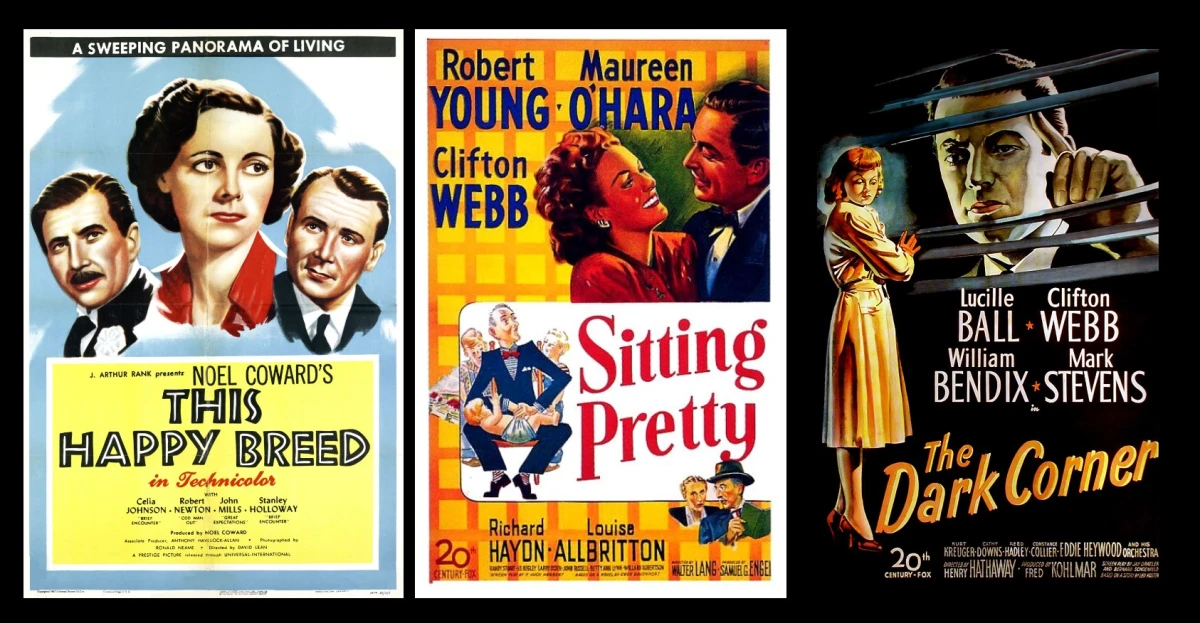by James Wallace Harris, 10/20/23
Turner Classic Movies (TCM) is the gold standard for old movie lovers. Nothing beats it if you’re addicted to watching movies from the past. However, TCM doesn’t show every old movie, and I’ve found a great secondary source for films from yesteryear. YouTube (not YouTube TV) is another giant cinematic library. It’s not as convenient to use, and the quality varies greatly, but there are plenty of old movie gems there to see.
Warning: YouTube also rents and sells movies. I’m referring to films that are part of YouTube to watch for free.
I subscribe to YouTube Premium to avoid commercials, so I don’t know if I’m getting some content that’s not available to the free version of YouTube. I’m going to present several examples, so it should be a test of that. It also helps that you sign into YouTube with your free Google account so it can remember what you like. 99.99% of YouTube content is hidden away, but YouTube will follow what you like and recommend more of the same. Once I started watching old movies it kept offering me more. It’s well seems endlessly deep.
First, you need to have the YouTube channel added to your television. You can watch on your phone or table, but these movies look great a large screen TVs. YouTube app is available for most smart TVs, or for streamers like the Roku, Fire TV, Apple TV, etc.
Next, go to YouTube on your computer and find a movie you like — I’ll be linking to several. Hit the save button and create a folder called Old Movies. If you want to save movies by categories, create them now. You can’t create these folders from your TV, but you can save movies you find on your TV to these folders.
When you see a movie you might like, start playing it. Check the settings icon to see what resolution the film is using. Films loaded years ago tend to be 240 and 360. Avoid them. Lots of films are being uploaded at 1080p or 720p which is high resolution, like what’s on a Blu-ray disc. 480p is the quality of DVDs. Occasionally, you’ll see higher resolutions, but 480p, 720p, and 1080p are fine to great.
I tend to save films that look interesting as YouTube recommends them. Then I go to my Old Movie folder when I want to watch one. I’m not sure how long these films stay on YouTube, or even if they’re legal. My guess is some copyright holders or companies licensing the copyright of old movies are putting them up on YouTube to earn ad revenue, or a share of YouTube Premium revenue. Since I’m seeing more movies all the time, I’m guessing it’s becoming a feature. (By the way, you’ll also need to use your computer to delete the movies from your folders once you watch them.)
I often read about movies to find ones I want to watch. I check the JustWatch app on my iPhone to see where they are streaming. If the movie isn’t listed, I often I find them on YouTube. Evidently, movies first go to premium streaming channels, then to the ad-support streaming channels like Roku, Tubi, Pluto, etc. After that, they are in limbo. And some of those are showing up on YouTube.
I’m finding lots of movies on YouTube from American and British studios that don’t often appear on TCM. Movies I’ve wanted to see for years. Movies I used to buy on DVD.
There is one downside to movies on YouTube. Their Closed Caption is AI generated, and horrible. If you need to see the words on the screen, you’ll probably be disappointed.
Now for some examples. Links are to Wikipedia. Here’s a real gem, This Happy Breed (1944), about England between WWI and WWII, directed by David Lean.
I thought Mister 880 (1950) about Edmund Gwenn being a counterfeiter of $1 bills to be an afternoon feel good flick.
Here’s a less famous Alfred Hitchcock flick with Gregory Peck, The Paradine Case (1947). It’s quite good.
Here’s the first Mr. Belvedere film with Clifton Webb called Sitting Pretty (1948). It’s from a YouTube channel called DK Classics III — they have tons of great old movies. Clifton Webb made three of these Mr. Belvedere movies. The first two show up on TCM all the time, but I’ve never seen the third, Mr. Belvedere Rings the Bell (1951). I found it on YouTube, but sadly only in 360p. I still watched it, and liked it so much I bought the DVD. I’ve now watched several Clifton Webb movies on YouTube.
Here’s a film noir with Lucille Ball. Clifton Webb plays an evil art dealer in The Dark Corner (1946). It’s only in 480p, but nice enough. One thing that’s important is to read about these movies on Wikipedia. It got decent reviews when it came out, but over time, it’s considered a respectable film noir and has a 100% rating on Rotten Tomatoes.
Not all old movies are great, but some I want to see for a reason. Project Moonbase (1953) was the second film Robert A. Heinlein worked on as a screenwriter. The first being Destination Moon, which TCM shows often. I’ve never seen Project Moonbase though. And here it is at 720p.
Susan and I are getting into old English movies. Here’s a fun romantic comedy with Vivian Leigh and Rex Harrison (his first film) called Storm in a Teacup (1937) about a reporter siding with a dog’s owner in a political brouhaha. It has the feel of a Frank Capra movie.
This should be enough to give you a taste of what I mean. These aren’t famous films, but they are fun to watch. If you’ve been watching TCM for decades, you might like to give YouTube a try and unearth some unseen treasures.
JWH


